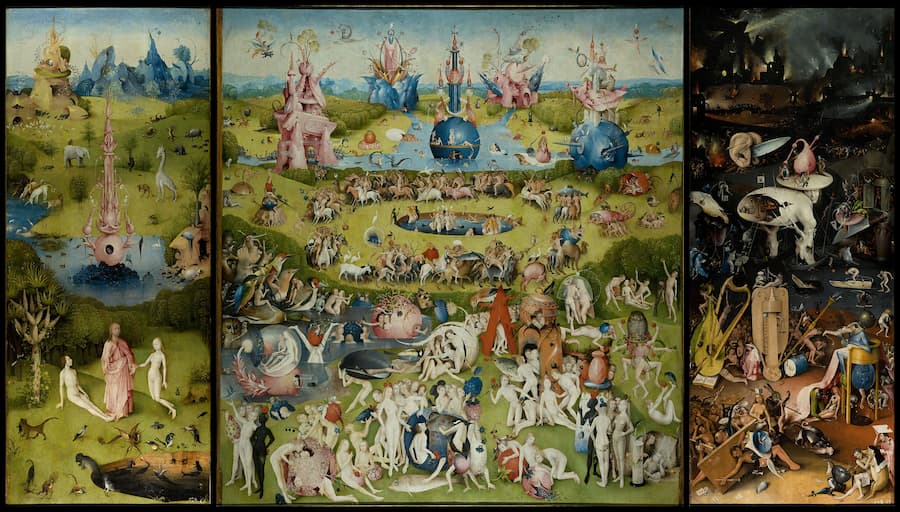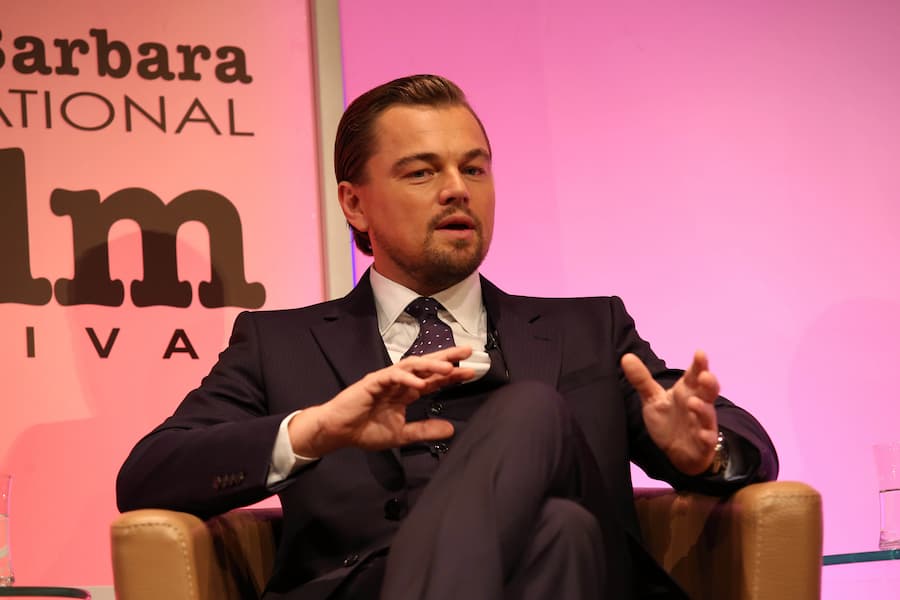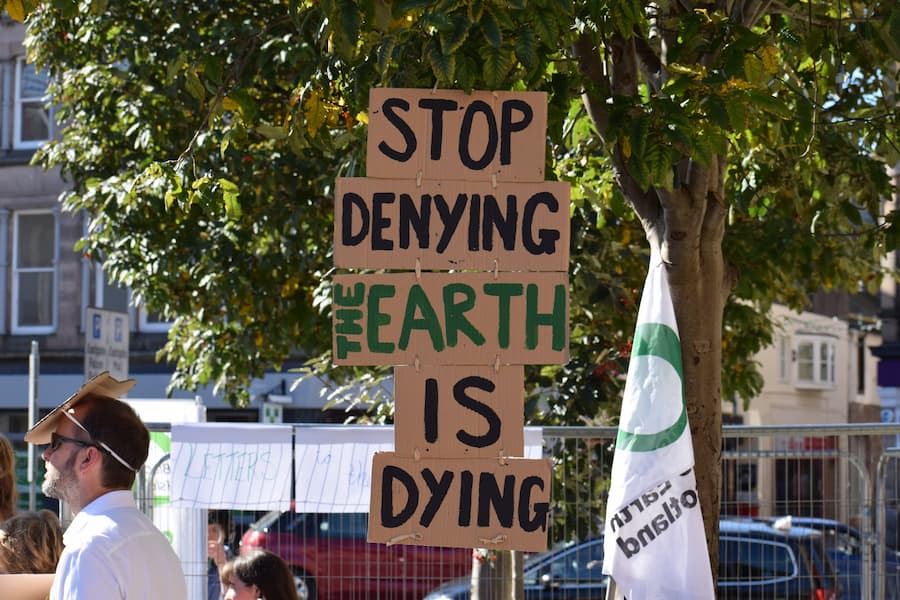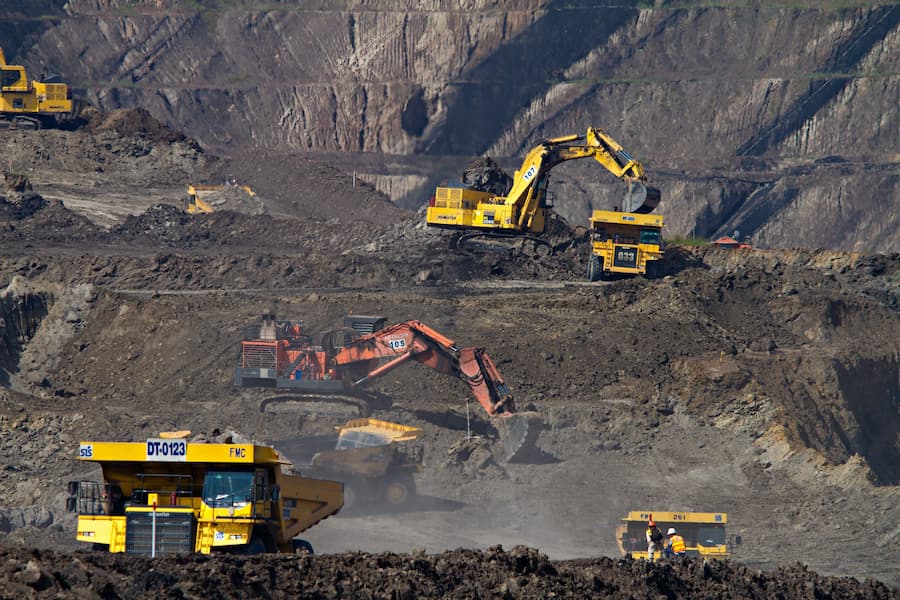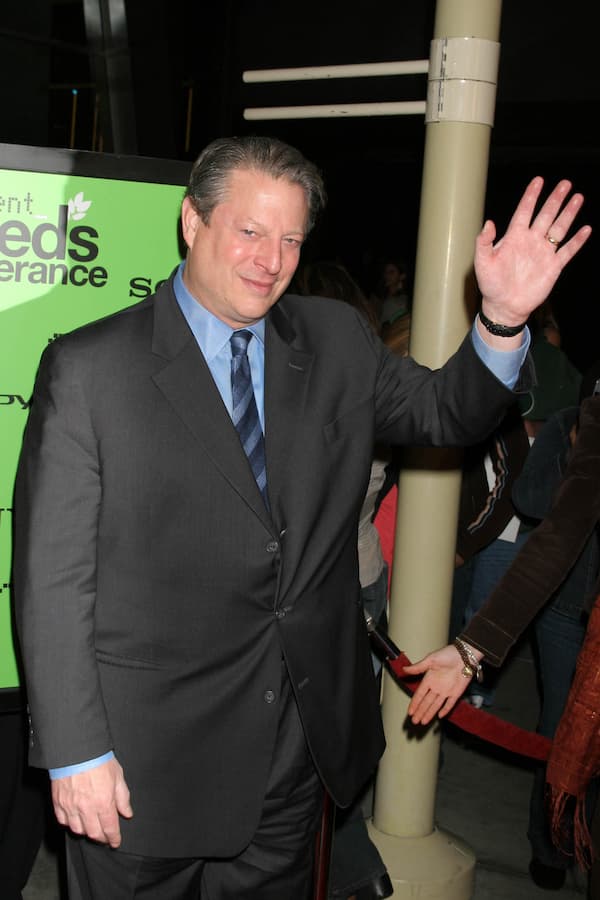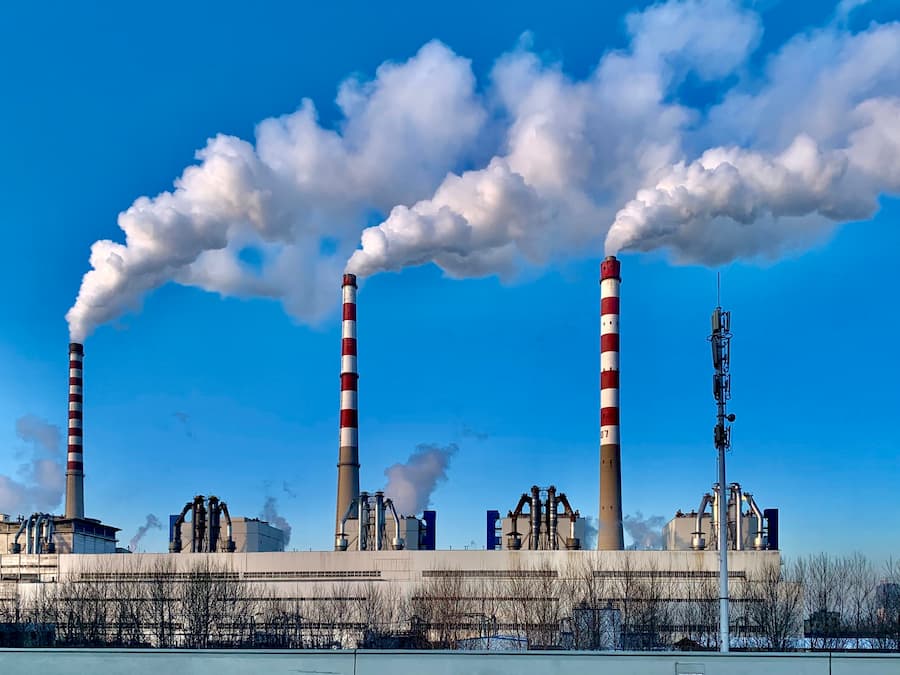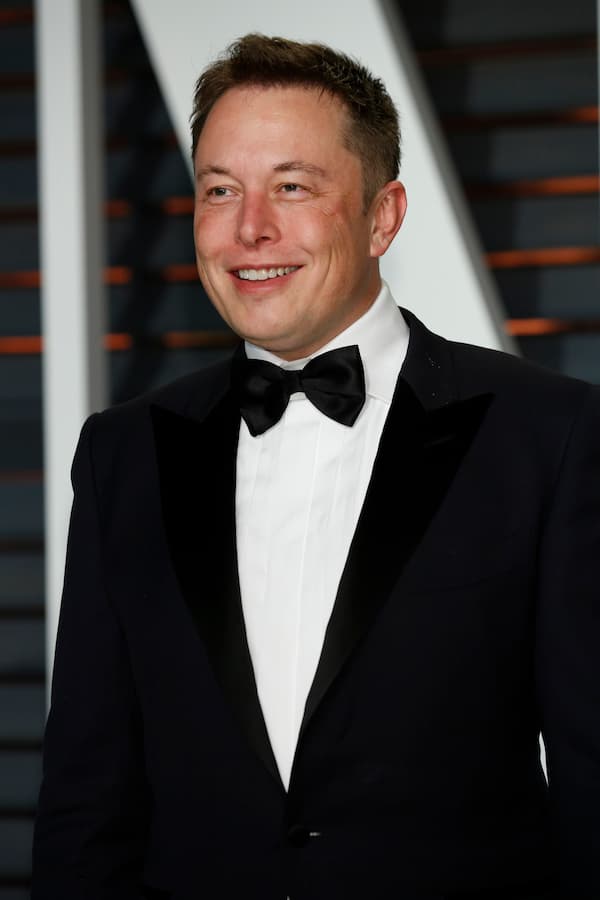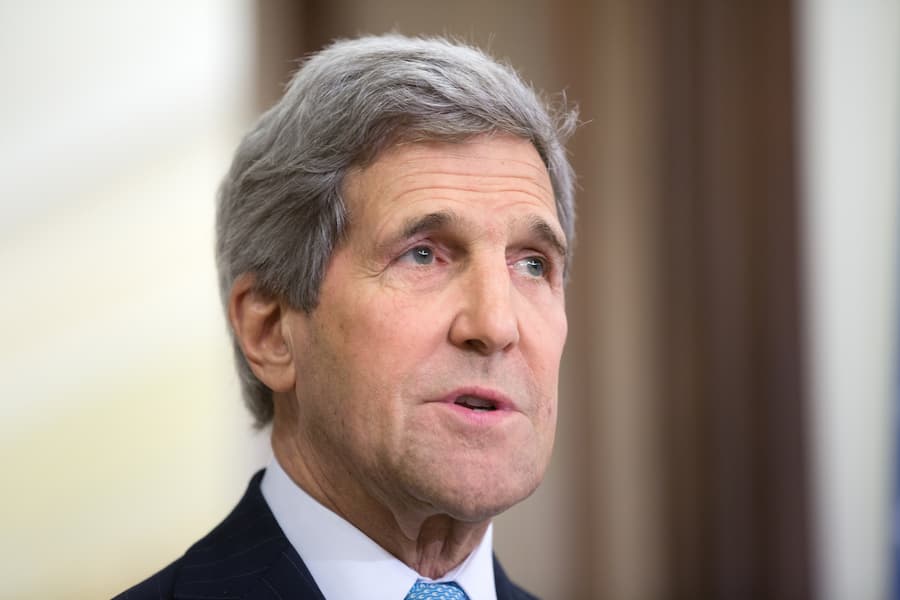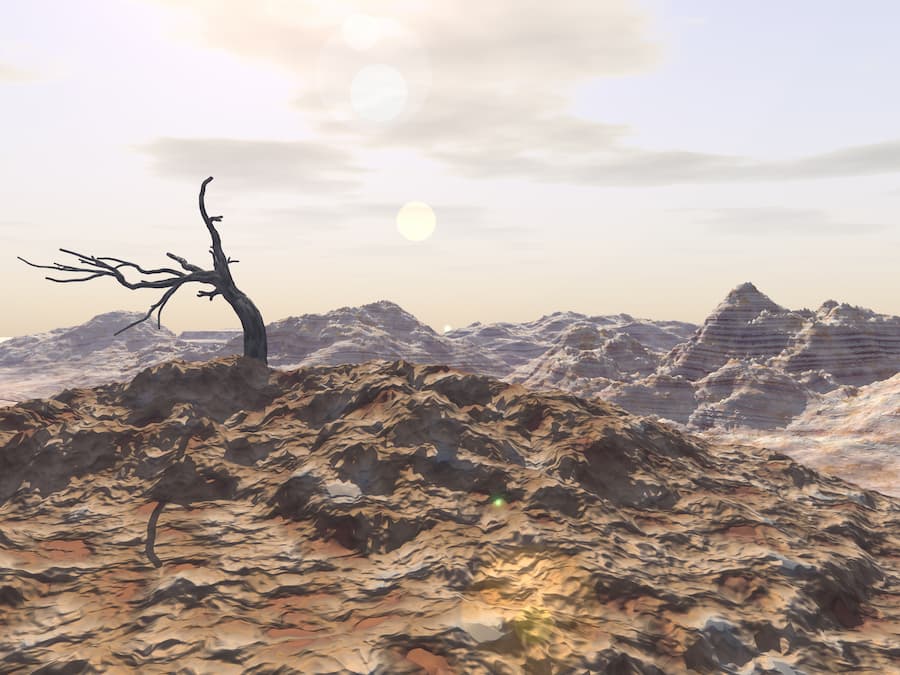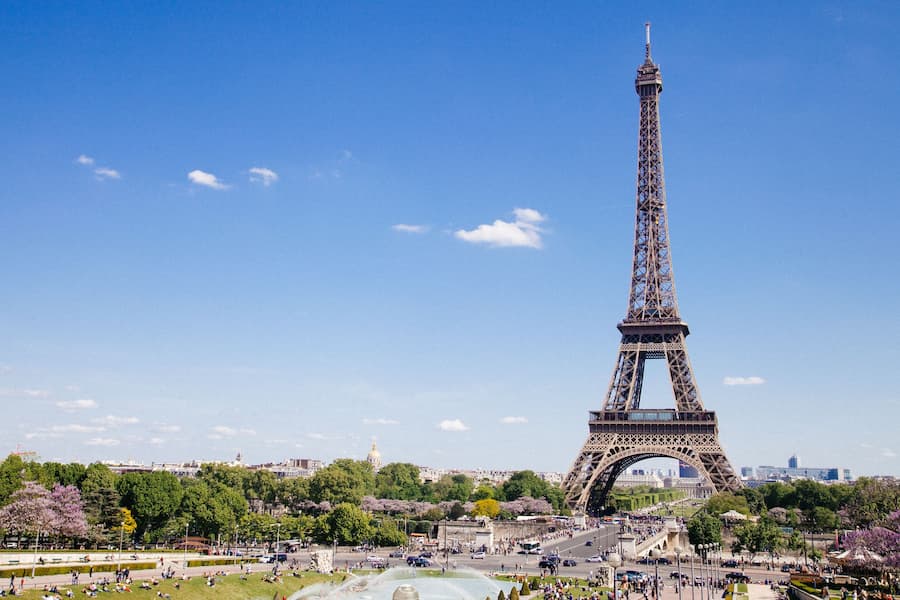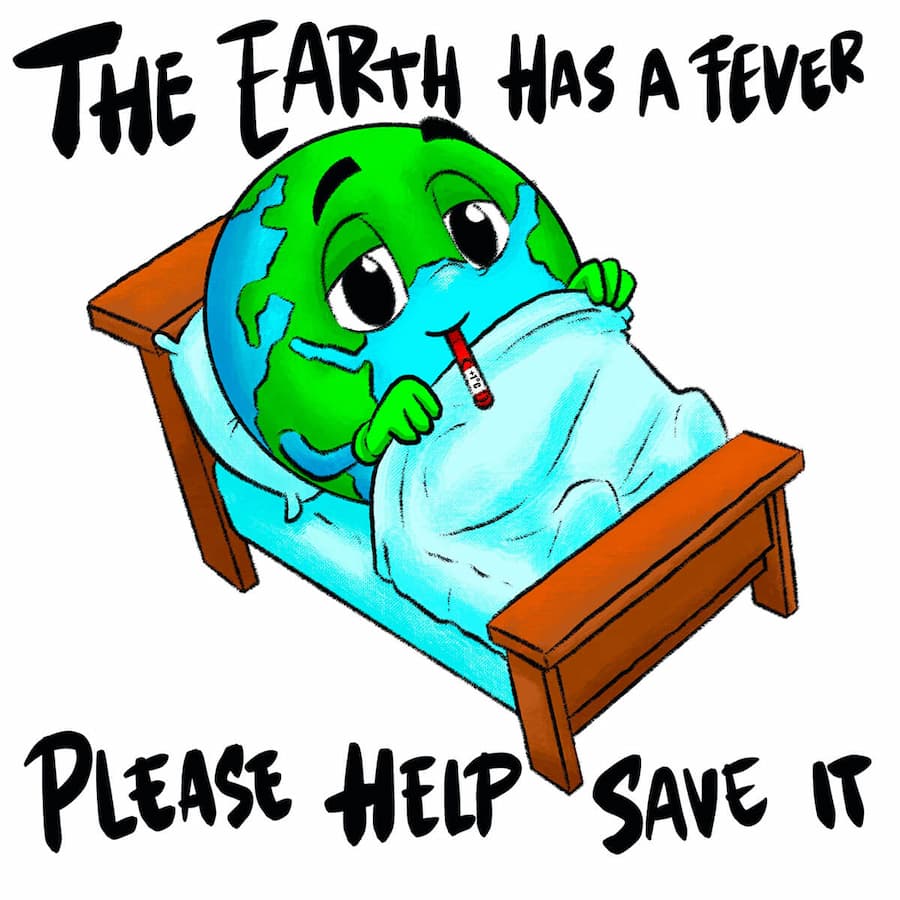Before the Flood
"Before the Flood" is a 2016 documentary about climate change featuring Leonardo DiCaprio, an Academy Award-winning actor, environmental activist and U.N. Messenger of Peace.
Leonardo DiCaprio starts the film by talking about a painting he saw as a child called "The Garden of Earthly Delights" by Hieronymus Bosch. It is a painting from around 1500 that is divided into three sections:
- The left side: Adam & Eve appear in the garden of Eden with animals in the background.
- The middle: there are overpopulation and the seven deadly sins along with debauchery and excess.
- The right side: the most nightmarish one with a twisted, decayed, burnt landscape. "A paradise that has been degraded and destroyed," as described by DiCaprio.
The film "Before the Flood" then transitions to scenes of pollution, and in my opinion, it is a pretty compelling opening to the film. This picture can serve as a warning to what is currently happening on our planet - the climate crisis.
United Nations Messenger of Peace
Early in the film "Before the Flood," DiCaprio is shown talking to United Nations Secretary-General Ban Ki-Moon before making a speech.
DiCaprio asks Ki-Moon, "What specific message do you think is the most important?"
Ki-Moon responds, "Climate change is coming much much faster. We have seen such, uh, extraordinary extreme weather patterns. If you consider this vastness of this universe, this planet Earth is just a small boat. If this boat is sinking, then I think we will have to all sink together."
Later, Ki-Moon says that DiCaprio has been a very committed and effective environmentalist and that he counts on him for his leadership and vision.
In his speech, DiCaprio says, "As an actor, I pretend for a living. I play fictitious characters often solving fictitious problems. I believe that mankind has looked at climate change in that same way."
Extinction of Species
DiCaprio states that he went to the Natural History Museum as a child and was fascinated with species that had become extinct, such as:
- The Dodo
- The Passenger Pigeon
- The Tasmanian Tiger
- The Great Auk
- The Quagga
- The Moa
"I remember the anger that I felt, reading all these stories about how explorers and settlers would just wipe out an entire species, and in the process, decimate the ecosystem forever. The difference now is we're knowingly doing this; it's just on a much larger scale."
Oil, Coal, and Natural Gas
"Most of our economy is based on fossil fuels," says Michael Brune, executive director of the Sierra Club. "Fossil fuels are coal, oil, and natural gas. Oil powers most of the transportation sector, coal and natural gas power most of the electricity."
"Now, in the first couple decades of the 21st century, in order to sustain our dependence on fossil fuels we're going to very risky, very extreme new sources. You see this in things like mountain top removal for coal, fracking for natural gas, offshore drilling for oil, and the tar sands, which is the most devastating form of producing fossil fuels. They take away massive forests, the water in the streams and rivers is poisoned. It has severe impacts on the wildlife, on native communities, and it requires a huge amount of energy simply to get it to our fuel tanks. There is no such thing as clean fossil fuel."
When DiCaprio sees the tar sands via helicopter, he mentions that it looks like Mordor from Lord of the Rings. This was a memorable moment in "Before the Flood."
Meeting Al Gore
DiCaprio mentions in "Before the Flood" that the first time he ever heard the term "global warming" was in his early twenties when he had the opportunity to sit one on one with Al Gore, the Vice President of the United States, in the White House.
Al Gore drew a picture of the planet on a chalkboard, and then he drew the atmosphere around it. He said that this was the most important issue of our time. He stated that all our modes of transportation, boats, trains, planes, cars, the way we produce food, the way we build cities, almost everything we do releases carbon dioxide into the atmosphere, which leads to climate change.
DiCaprio states how Al Gore said that "the polar ice caps will melt, the seas will start to rise, there will be more dangerous weather patterns, floods, droughts, wildfires. It sounded like some nightmarish science fiction film. Except everything he said is real and it's happening right now."
Serious Consequences
Dr. Enric Sala, National Geographic Explorer-in-residence, states that by 2040 people will be able to sail over the North Pole as there will be no sea ice left in the Arctic Ocean in the summer.
Dr. Sala adds, "The Arctic is like the air conditioning for the Northern Hemisphere. If it goes away, that's going to change currents, that's going to change weather patterns, that's going to make floods and droughts more catastrophic. It's the most dramatic transformation of a large environment ever."
Later, DiCaprio meets the mayor of Miami Beach, Philip Levine, who says that climate change is happening right now and affects the city with flooding. According to the mayor, they did a 400 million dollar project citywide to raise the roads and put in electric pumps that should help the city for 40 to 50 years.
Unfortunately, Governor Rick Scott and Senator Marco Rubio are climate change deniers. The film shows other climate change deniers such as Donald Trump and Ted Cruz.

Climate Change Denial Industry
Climate scientist Michael Mann states that "there's about as robust a consensus about human-caused climate change as there is for any matter in science, be it the theory of gravity. 97% of climate scientists agree the globe is warming, our climate change changing, it's due to fossil fuel burning and other human activities. Unfortunately, we are fighting this massive disinformation campaign to confuse the public."
For more information about the disinformation campaign, watch Merchants of Doubt.
Michael Mann mentions how he was attacked in the media via the Wall Street Journal and Fox News and received many death threats.
"These folks know they don't have to win the legitimate scientific debate. They just need to divide the public, and all of that hatred and fear is in fact organized and funded by a few players. Fossil fuel interests, folks like the Koch brothers finance a very large echo chamber of climate change denialism. Websites and news outlets and think tanks. They find people with fairly impressive credentials who are willing to sell those credentials to fossil fuel interests."
"You have all of these organizations with lofty sounding names like Americans for Prosperity or the Heartland Institute. These are front groups that are funded by corporate interests. Americans for Prosperity is really just a front group for the Koch Brothers. Koch Industries is one of the largest privately-held fossil fuel interests in the world, and they are doing everything they can to protect that wealth. They've lobbied Congress. James Inhofe is probably the most prominent congressional climate change denier. He's the chair of the Senate Environment Committee. It might not be surprising to learn that James Inhofe is one of the largest recipients of fossil fuel money in the U.S. Senate."
"Fossil Fuel Interests have bought our House of Representatives and Senate Environment Committee. We can't get a climate bill passed through our Congress because it's controlled by fossil fuel funded climate change deniers who are blocking any bills that would attempt to deal with this problem."

China and India
Leonardo DiCaprio mentions that humanity has known about climate change for more than half a century. He also states that China has recently passed the United States as the world's number one polluter.
The good news is that China has invested a lot in wind power and solar power. China has some of the biggest wind and solar companies in the world.
The world's third-largest emitter is India. However, there are 300 million people in India without power, and the country is trying to dramatically increase it's energy production.
While in India, Leonardo got interesting statistics. Basically, the electricity consumption of one American at home is equal to:
- 1.5 citizens of France
- 2.2 citizens of Japan
- 10 citizens of China
- 34 citizens of India
- 61 citizens of Nigeria
This is because Americans are building bigger, building more, and using much more than before.
DiCaprio states, "The U.S. has been the biggest emitter of greenhouse gases in history, and there's no doubt that we've all benefited from fossil fuels. I know I have. My footprint is probably a lot bigger than most people's, and there are times when I question, what is the right thing to do? What actions should we be taking? There are over a billion people out there without electricity, and they want lights, they want heat, they want the lifestyle that we've had in the United States for the last hundred years. If we're gonna solve this problem, we all have a responsibility to set an example, and more than that, help the developing world to transition before it's too late."
Other Effects
Unfortunately, the small island nations who contribute the least to climate change will face the greatest effects.
Also, the carbon pollution we emit causes ocean acidification. "One billion people depend on fisheries from coral reefs for virtually all of their protein" stated Jeremy Jackson, a marine ecologist.
The film states that in the previous 30 years (the film was released in 2016), half of all coral has been lost.
The marine ecologist adds, "The oceans are like this big buffer because they absorb carbon dioxide. They take up about a third of the CO2 that we dump into the atmosphere. So because of that, they are a stabilizing force in climate. The problem is the ocean can't do its job fast enough with this absurd rate of carbon dioxide emissions. You know, life isn't gonna disappear in the ocean. There will always be life in the ocean, but it's not gonna be necessarily the kind of life we want. We could go back to 3 billion years ago and have just a whole lot of slime."
Lindsey Allen, Executive Director of Rainforest Action Network, says, "We're taking away the ecosystems that normally help us to restabilize the climate. Like oceans, rainforests absorb carbon from our atmosphere. Decades and decades of the forests breathing in the carbon, storing it in the trunks and the leaves and the organic matter, so those carbon emissions are being held safe for us until we clear them, and light them on fire. It acts like a carbon bomb and releases massive carbon emissions back into the atmosphere."
Allen states that there are three big tropical rainforest areas in the world that are left (see deforestation):
- The Amazon in South America
- The Congo Basin in Africa
- The South East Asian Rainforest which spans Indonesia
Sadly, in Indonesia, there are fires being intentionally set in order to create palm oil plantations that grow the cheapest vegetable oil in the world. It's used in cooking oils, in processed foods, in cosmetics, and in detergents.
Farwiza Farhan, chairperson of Yayasan Haka states, "The forest fires release a copious amount of carbon. Last year in 2015, when the forest fire happens in Indonesia, it emits more carbon daily than the entire U.S. economy."

Meat Consumption
In the United States, 47% of the land is used for food production and 70% of that is used to grow feed for cattle. Fruits, vegetables and nuts are only 1%.
Cows emit large amounts of methane into the atmosphere, which is more powerful at trapping heat than carbon dioxide, more than 20 times (higher global warming potential).
Nearly all of the methane emissions are due to livestock. About 10-12% of total U.S. emissions are due to beef.
Changing a diet to chicken, as opposed to beef, could drastically reduce emissions. The chicken will require 20% of the land and 10% of the greenhouse gas emissions.
Beef requires 50 times as much land as rice, potatoes or wheat.
See more on the effects of the meat industry.
Elon Musk - CEO of SpaceX and Tesla (Interview in "Before the Flood")
Elon Musk states, "The fossil fuel Industry is the biggest industry in the world. They have more money and more influence than any other sector so I mean the more that there could be a popular uprising against that, the better. But, I think the scientific fact of the matter is we are unavoidably headed towards some level of harm. So, the sooner we can take action the less harm will result."
Elon says that the grand vision of the gigafactory is to bring down the cost of batteries, so it is affordable.
He also adds that the advantage of solar panels and batteries is that you can avoid building electricity plants, so a remote village could have solar panels that charge a battery pack that then supplies power to a village. He says that this is similar to how developing nations skipped landline phones and went straight to cellphones.
Elon declares that it will take about 100 gigafactories to transition the whole world to sustainable energy.
Elon also says that we need a price on carbon to accelerate the process to a more sustainable future.
The film states that by 2060, climate change will cost taxpayers an estimated 44 trillion dollars. Hence, it makes sense to have a carbon tax.
John Kerry - Secretary of State (Interview in "Before the Flood")
Leonardo DiCaprio sits down with John Kerry, and they both discuss the importance of the Paris Climate Agreement in 2015.
Leonardo asks Kerry what makes the Paris Agreement different from the previous negotiations, which have not brought forth enough climate action.
Kerry responds, "Well, let me tell you why this is different, and it really is different. Last year President Obama was able to stand up in Beijing with the Chinese President Xi and announce intended reductions in emissions for Paris. Well guess what, when the two largest economies in the world and the two largest emitters in the world stand up and make a statement like that, that's created a momentum that never existed before. A lot of things are coming together."
"Tragically, the full measure of the negative impact of climate change is coming together too. What's happening now is that you have mass populations that are moving as a result of climate. Or you have huge fights over water, which could erupt into wars. And any extremist philosophy could appeal to people if they have nowhere to live, no way to live and that's when people are vulnerable. If anybody thinks I'm kidding about that, it's happening today. And the greatest fear about all of this is leaving this planet in better shape than we were given it and that's not what we're doing today."
Tipping Points
Later in "Before the Flood," DiCaprio then speaks with Johan Rockstrom, a professor of environmental science. Rockstrom mentions that we are, on average, moving towards an increase of 4 degrees Celsius in this century.
He says, "We haven't been in a four-degree warmer world, um, for the past four million years. So it's not as if it's a place we know very well."
DiCaprio asks him what the world would look like if we don't take action.
Johan responds, "To begin with, for the past 12,000 years temperatures are almost miraculously stable. In fact, average temperatures vary within only plus-minus one degrees Celsius during this entire period."
"Today we're approaching one degree Celsius. Already at just 0.85 degrees we're seeing faster than predicted impacts. The world's coral reefs begin to collapse even before two degrees... at 3,4 degrees, we will have heat waves which makes many regions in the world not livable any longer. Agriculture will be collapsing around the equator. That would take us beyond being able to responsibly feed humanity. What makes scientists so nervous is that we can reach a point where Earth takes over and starts reinforcing warming. This is what we call tipping points. And the most obvious one is Greenland."
"Greenland, for the first time, is melting on its entire surface to a point where, instead of being a white surface, becomes a dark surface, and suddenly instead of becoming a cooler, becomes a self-heater... Suddenly all these feedbacks start kicking in. Methane stuck under frozen permafrost thaws to a point where it starts getting released."
However, he says that the Paris Climate Agreement gives a lot of hope, and there are a lot of advances in renewable energy. He also adds that there was a massive uprising in Sweden, which led Sweden to state that it will become the first fossil fuel-free nation.
Is the Climate Paris Agreement Enough?
In "Before the Flood," DiCaprio discusses with Obama about the Paris Agreement. Does it go far enough?
Obama starts off by saying, "The Paris Agreement ended up being a historic agreement, not because it gets us to where we need to be eventually, but for the first time, locking in all countries into verifiable steps and targets they're gonna take. It creates the architecture that allows us to finally start dealing with this problem in a serious way."
"I was happy that we put the architecture in place. The targets that have been set in Paris are nowhere near enough for what the scientists tell us we have to do eventually to solve this problem. But if we can use the next 20 years to apply existing technologies to reduce carbon emissions, and then start slowly turning up the dials as new technologies come on line, so what we have more and more ambitious targets each year, then, we're not gonna completely reverse the warming that now is inevitable, but we can stop it before it becomes catastrophic."
DiCaprio says he admires his optimism but says that scientists are saying that sections of ice in Antarctica are melting, which will guarantee four to six meters of ocean level rise, which would be catastrophic.
DiCaprio then asks Obama what makes him terrified for the future.
Obama responds, "A huge portion of the world's population lives near oceans. If they start moving, then you start seeing scarce resources, the subject of competition between populations. This is the reason why the Pentagon has said this is a national security issue. This isn't just an environmental issue."
Conclusion - "Before the Flood" Great at Raising Awareness
Towards the end of the film "Before the Flood," DiCaprio has a discussion with NASA astronaut Dr. Piers Sellers who shows him an advanced climate simulation of the Earth.
Piers Sellers states that Europe could get colder because of climate change as the Gulf Stream would slow down, and it would transport less heat to Europe.
He also mentions that climate change has caused sustained drought, which led to conflict in the Syrian Civil War, and in Darfur, Sudan. In these places, there were shortages of food and water.
Later in the film, DiCaprio meets with Pope Francis, who made an encyclical about climate change. This document is about asking for immediate action to stop global warming and is also about asking for justice for the poor.
Then, Leonardo DiCaprio talks again about the painting mentioned in the beginning of the film, and after that, he concludes the film with his speech at the United Nations.
Overall, "Before the Flood" is an excellent informative documentary about climate change and is one that I would recommend.
Leonardo DiCaprio was also in The 11th Hour and Green World Rising.

Further Reading and Sources
- Home
- Best Documentaries
- Before the Flood
Join the Community and Newsletter (5000 Subscribers)
You can subscribe to my Substack Page or see the archives of previous posts. More great content coming soon!
Recent Articles
-
Climate Change Guide
Apr 23, 24 12:36 PM
The Climate Change Guide is your guide to a more sustainable future, and will provide you with all relevant information on mankind's greatest challenge. -
Climate Presentations by Climate Reality
Mar 03, 24 12:17 AM
You can see great climate presentations by Climate Reality. They can be customized for different audiences. -
Make the Planet Great Again!
Mar 02, 24 11:33 PM
We need to make the planet great again! We will build a solar wall along the Mexican border and make the fossil fuel industry pay for it! -
Historical Climate Change News
Mar 02, 24 11:25 PM
This section includes historical climate change news you should know about. These articles span several different topics and will help you stay up-to-date.
